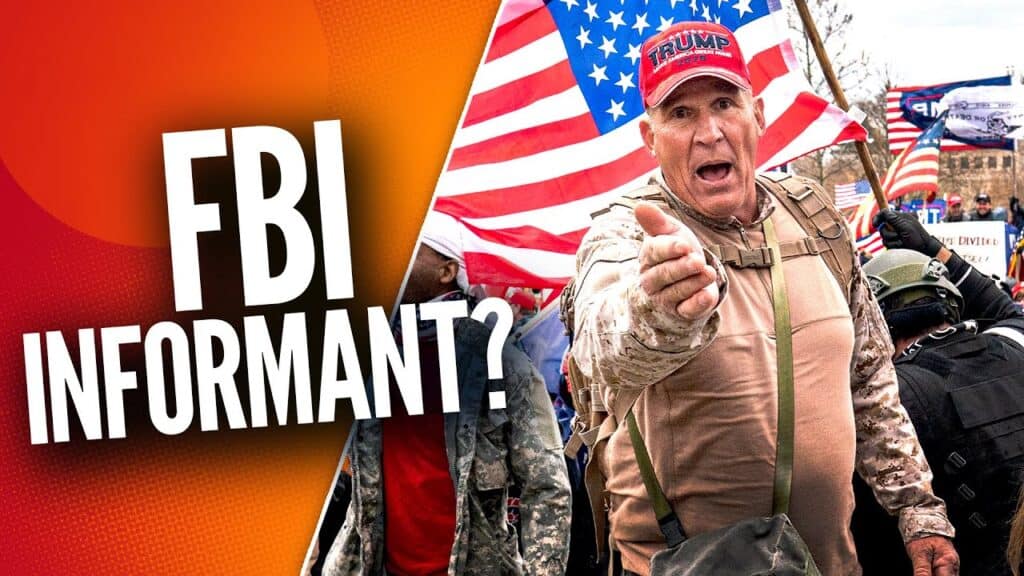Ray Epps, a Marine veteran whose actions on January 6 led to claims that he was an FBI infiltrator, spoke out on Sunday for the first time, telling “60 Minutes” the idea of him being an FBI informant was “a lie.”
In recent years, the media has been laser-focused on the events that transpired on January 6th, 2021. One figure that has garnered attention, particularly from Tucker Carlson, is Ray Epps, a Marine veteran whose actions on that day have raised questions about his involvement. Despite being caught on camera encouraging people to go to the Capitol, Epps has managed to evade any charges – a fact that has led many to question whether he has connections to the FBI or other government agencies.
Recently, 60 Minutes ran a “puff piece” on Epps, painting him as a victim of obsession from Tucker Carlson and others. The segment downplays his actions and involvement in the events of January 6th, focusing instead on his claim that he only wanted to witness the protest and play peacemaker when violence broke out. While it is true that Epps was not seen committing any acts of violence or entering the Capitol, the narrative put forth by 60 Minutes conveniently omits the fact that he was recorded actively inciting people to go to the Capitol.
The media’s portrayal of Epps is strikingly inconsistent with how other individuals who were in Washington, D.C., on January 6th have been treated. Many have been demonized, arrested, and jailed – some without charge and held in solitary confinement. Yet, Epps has been granted an exclusive interview on 60 Minutes and portrayed as a victim.
This inconsistency raises important questions about media bias and the true narrative surrounding January 6th. It is concerning that the mainstream media is willing to flip the script and give a pass to one individual while vilifying others who were in the same vicinity. What is the motive behind this selective treatment, and what are they trying to conceal?
Donald Trump, for example, was accused of inciting an insurrection based on his call for supporters to peacefully protest, yet Epps, who was recorded encouraging people to go to the Capitol, is not subjected to the same scrutiny. The inconsistencies in the media’s narrative and treatment of those involved in the events of January 6th demand critical examination.
As the mainstream media continues to push their narrative surrounding the events of January 6th, it is essential to question the inconsistencies and potential biases at play. By scrutinizing these narratives, we can work to uncover the truth about what happened that day and why certain individuals, like Ray Epps, are seemingly granted special treatment.
